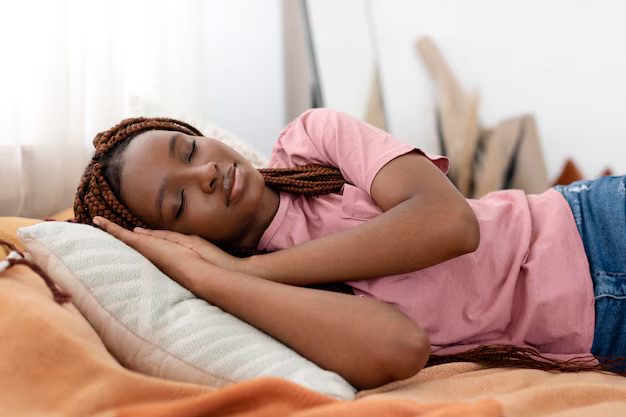This content is for informational and educational purposes only. Always consult a qualified healthcare provider.
So, what is the relationship between sleep and immune function? According to research, one of the most important aspects of sleep, is its effects on our immune system. Which is our body’s defense mechanism against infections, and diseases.
Honestly we all need to pay attention to sleep, and its incredible impact on our immune system. With everything going on around us, it’s important to understand that sleep, and immune function work well together. And how a good night’s sleep can improve our health.
Sleep is not just a time for our bodies to rest, but a vital process that plays a huge role in maintaining, and boosting our immune function.
📋 Table of Contents
Sleep and Immune Function: What’s The Connection?


So, what happens when we don’t get enough sleep? Well sleep deprivation can lead to a weakened immune response. Research has consistently shown that sleep, and immune function are closely related. When you sleep, your body produces cytokines, which are proteins that help fight off infections and diseases. However, lack of sleep leads to fewer production of cytokines. And when we’re sleep deprived, we also produce more stress hormones, like cortisol, which can further suppress our immune function.
It’s like you’re going from one problem to another.
Additionally, when you’re sleeping, your immune system also produces antibodies, which are proteins that recognize, and bind to specific pathogens, such as viruses, and bacteria. This process helps to neutralize seemingly threatening viruses, and prevent you from falling sick.
How Sleep Affects Immune Function
Several key factors contribute to the sleep-immune connection:
- Cytokines: As we mentioned earlier, cytokines are proteins that help fight off infections, and inflammation. While you sleep, cytokines are produced and released, which help in regulating your immune response.
- T-Cells: These cells help regulate your immune response and gets rid of infected cells. And T-Cells are activated and released while you’re asleep, which helps protect your immune system.
- Antibodies: They are secreted into the blood and mucosa, where they bind to, and inactivate specific pathogens and toxins. Sleeping consistently helps the body produce antibodies and maintain a strong immune response. However, the specific mechanisms and timing of antibody release during sleep are still under study.
- Natural Killer Cells: These cells play a crucial role in eliminating infected cells or tumor cells.
How To Get The Best Sleep To Improve Your Immune System
The quality of your sleep every night matters as well. It’s not only about the number of hours you sleep, but how restorative you sleep. Factors like your sleep environment, bedtime routine, and even your diet can all affect your sleep quality. And poor sleep quality may affect your immune system, and it’s ability to fight off infections. Therefore it is important to sleep in a sleep-friendly environment, by making sure your bedroom is dark, quiet and cool.
Consider using blackout curtains, earplugs, or a white noise machine, if necessary. Also, it is important to create your own relaxing bedtime routine to signal your body that it’s time to wind down. This could include activities like reading, gentle stretching, or meditation. And not gaming, doom scrolling on social media, or watching TV.
Other tips you can use to improve your sleep quality and immune system include:
- Avoiding heavy meals before bedtime
- Exercising regularly
- Cleaning your bedroom
- Airing your bedroom
- Getting morning sunlight
- Managing your stress levels
- Going to bed early
- Avoiding caffeine and alcohol hours leading to bedtime
How Much Sleep is Enough?
How much sleep do you really need? The general recommendation for adults is between 7 to 9 hours of quality sleep. However, people are different and their needs vary depending on factors like age, lifestyle, and overall health. The key is to listen to your body, and find what works best for you. If you are waking up feeling refreshed and ready to start the day, you’re probably getting enough sleep.
That said, certain sleep disorders, like insomnia, or sleep apnea, may affect your immune function. Therefore, if you are struggling with sleep issues, you have to see a health professional who can provide guidance, and support.
In conclusion
Sleep and immune function are intricately connected, and making high quality sleep a priority, may help prevent you from developing infections and diseases. So, make cautious effort by making good lifestyle choices, to get enough sleep, and give your immune systems the help they need.

